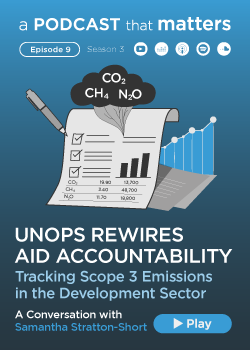Print

Methane and Ammonium Removal In redoX transition zones: MARIX
Details
Locations:Netherlands
Start Date:Mar 1, 2020
End Date:Feb 28, 2026
Contract value: EUR 7,610,000
Sectors: Laboratory & Measurement, Research & Innovation
Description
Programme(s): H2020-EU.1.1. - EXCELLENT SCIENCE - European Research Council (ERC)
Topic(s): ERC-2019-SyG - ERC Synergy Grant
Call for proposal: ERC-2019-SyG
Funding Scheme: ERC-SyG - Synergy grant
Grant agreement ID: 854088
Project description
Exploring the role that microorganisms play in modulating Earth’s biogeochemistry
To understand the Earth's response to global change, we must have detailed insight in the main microbial pathways responsible for key geochemical transformations. In marine environments, sharp redox transitions act as prime sites for ammonium and methane removal and hence strongly modulate the cycles of carbon and nitrogen. However, there is still much to learn about the microbial players and key controls of these redox reactions. The EU-funded MARIX project aims to investigate the geochemistry of key redox zones and the complex, in situ microbial interactions that together impact marine environments. The project members will do so through novel fieldwork, cutting-edge laboratory experiments and advanced modelling for a range of coastal ecosystems. The project will result in a better understanding of the key role that microorganisms play in modulating Earth’s biogeochemistry.
Objective
Earth’s geochemical evolution was shaped by an enormous microbial metabolic diversity. One of the urgent scientific grand challenges is to decipher the key geochemical pathways involved in those 4 Gy of evolution, with the ultimate aim to obtain a truly predictive understanding of the response of the Earth System to global change. Rapid advances in geochemistry and microbiology have revealed the unique and critical role of sharp redox transitions in marine environments as prime sites for the removal of toxic ammonium and the greenhouse gas methane. Yet, the redox reactions, microbial players, and key controls remain largely unexplored. Our ERC synergy project MARIX will unite the complementary expertise required to gain a fundamental and mechanistic understanding of the geochemistry of these redox zones and the complex in-situ microbial interactions that together strongly impact our environment. By combining highly innovative fieldwork, cutting-edge laboratory experiments and state-of-the-art modeling for a range of carefully selected and representative coastal ecosystems we will: 1. Unravel the geochemistry and novel microbial pathways that remove methane and ammonium through oxidation with metal-oxides. 2. Determine the impact of the novel microbial pathways of methane and ammonium oxidation on the dynamics of nutrients, oxygen and other key elements. 3. Develop innovative gene-centric biogeochemical models for coastal sediments and overlying waters, to improve projections of the impacts of eutrophication and climate change. MARIX will bring together two outstanding and complementary groups located within easy travel distance, allowing excellent synergistic coupling of infrastructure, personnel and resources on a daily basis. Our project will lead to major breakthroughs in the understanding of the key role that microorganisms play in modulating Earth’s biogeochemistry with far-reaching implications for a wide range of research fields.

